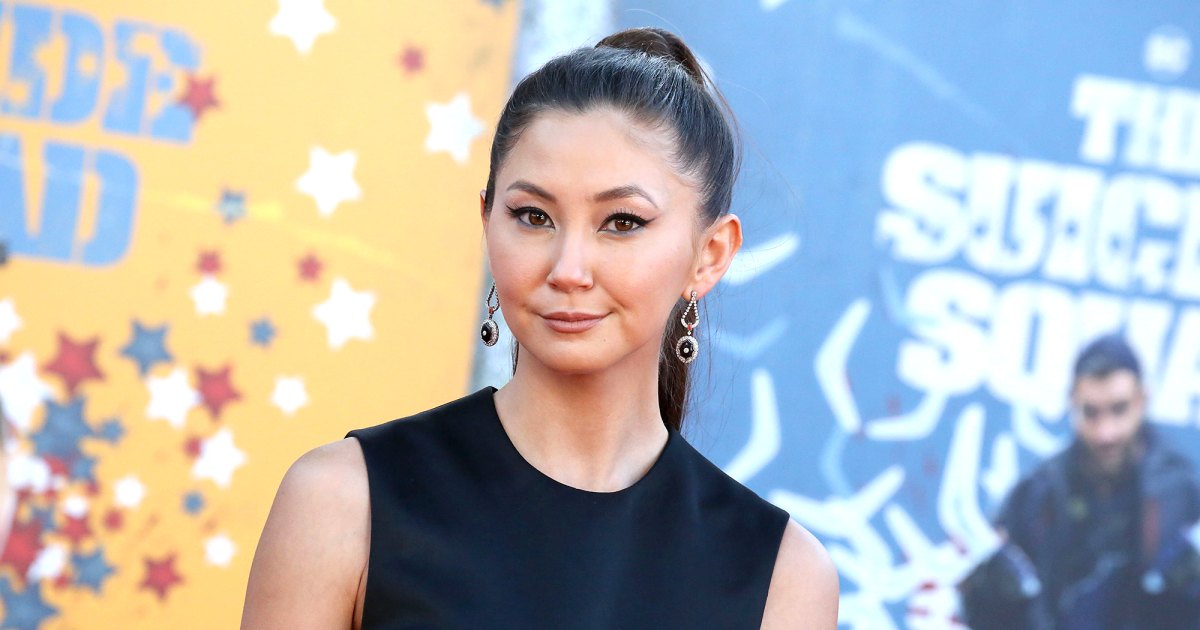
Shocking Revelations: Kimiko Glenn Exposes 'Orange Is the New Black' Cast's Shocking Payment Struggles!

Kimiko Glenn, known for her role as Brook Soso in 'Orange Is the New Black,' reveals that the cast struggled financially, juggling multiple jobs to make ends meet during the show's seven-season run
Orange is the New Black actress Kimiko Glenn is showing her support for fellow members of SAG-AFTRA who are currently engaged in contract disputes with streaming platforms like Netflix.
In a TikTok video posted on Saturday, July 15, the 34-year-old actress expressed her belief that she should be compensated for the ongoing streaming of her topless scenes in Orange is the New Black. She emphasized the need for fair payment, highlighting the fact that they were not adequately compensated in the past.
She continued, saying that despite their fame, people in the show still had to work second jobs as bartenders. They were internationally famous, but couldn't afford to give up their second jobs.
Orange is the New Black, the Netflix adaptation of Piper Kerman's memoir, premiered in 2013. The acclaimed series followed Piper's journey after she was incarcerated at a local women's prison for transporting drugs. The show featured a talented ensemble cast including Taylor Schilling, Laura Prepon, Uzo Aduba, Laverne Cox, Danielle Brooks, Natasha Lyonne, Samira Wiley, and Taryn Manning, who portrayed Piper's fellow inmates.
Lea DeLaria, Constance Shulman, Kimiko Glenn, and Yael Stone in ‘Orange is the New Black.’ Ali Goldstein/Netflix
Glenn, known for her role as Brook Soso on OITNB, refrained from disclosing which fellow actors had to find additional sources of income while working on the show. However, she further asserted that they were unable to afford taxis for transportation to and from the set in New York City. Netflix has not addressed these claims publicly or revealed the salaries of the OITNB cast.
Glenn expressed her thoughts, along with several former costars, on social media, expanding on what was previously shared with the New Yorker earlier this month. In a profile published on Wednesday, July 12, Glenn expressed her disappointment at the meager compensation she received for her work on a widely loved TV series, describing it as "just so sad."
Orange is the New Black aired its final season on Netflix in July 2019, and since then, the cast has been receiving residual checks for repeat TV viewings. Glenn, known for her role as Dawn in Sara Bareilles' Waitress musical, took to TikTok to share her recent paycheck with her followers. Surprisingly, she revealed that she only earned a meager $27 in residuals.
Recently, the SAG-AFTRA union, representing over 160,000 performers, declared a strike after the Alliance of Motion Picture and Television Producers (AMPTP) failed to address their concerns during contract negotiations. These concerns include fair wages, the implementation of artificial intelligence, and other pressing issues.
As part of the strike agreement, unionized actors are prohibited from participating in TV or movie projects and promoting them through interviews or social media. Several notable actors, including Mandy Moore, Jason Sudeikis, Olivia Wilde, Logan Lerman, Sean Gunn from Gilmore Girls, and the cast of Grey's Anatomy, have also shown their support by joining the picket lines.
In a recent Instagram post on Friday, July 14, Glenn expressed her reasons for joining the strike, stating, "We're not wealthy or extravagant! This industry is a game that we're all expected to play, but I have no interest in playing it. I simply want to act honestly, without the pressure to dress up in fancy outfits that don't reflect my true success. It's all nonsense, and I'd much rather be comfortable in pajamas." Glenn also emphasized the challenges that actors face, as they are constantly under scrutiny with the world watching and expecting them to meet certain standards, despite lacking the necessary means and resources. This not only affects their financial stability but also takes a toll on their mental well-being.











